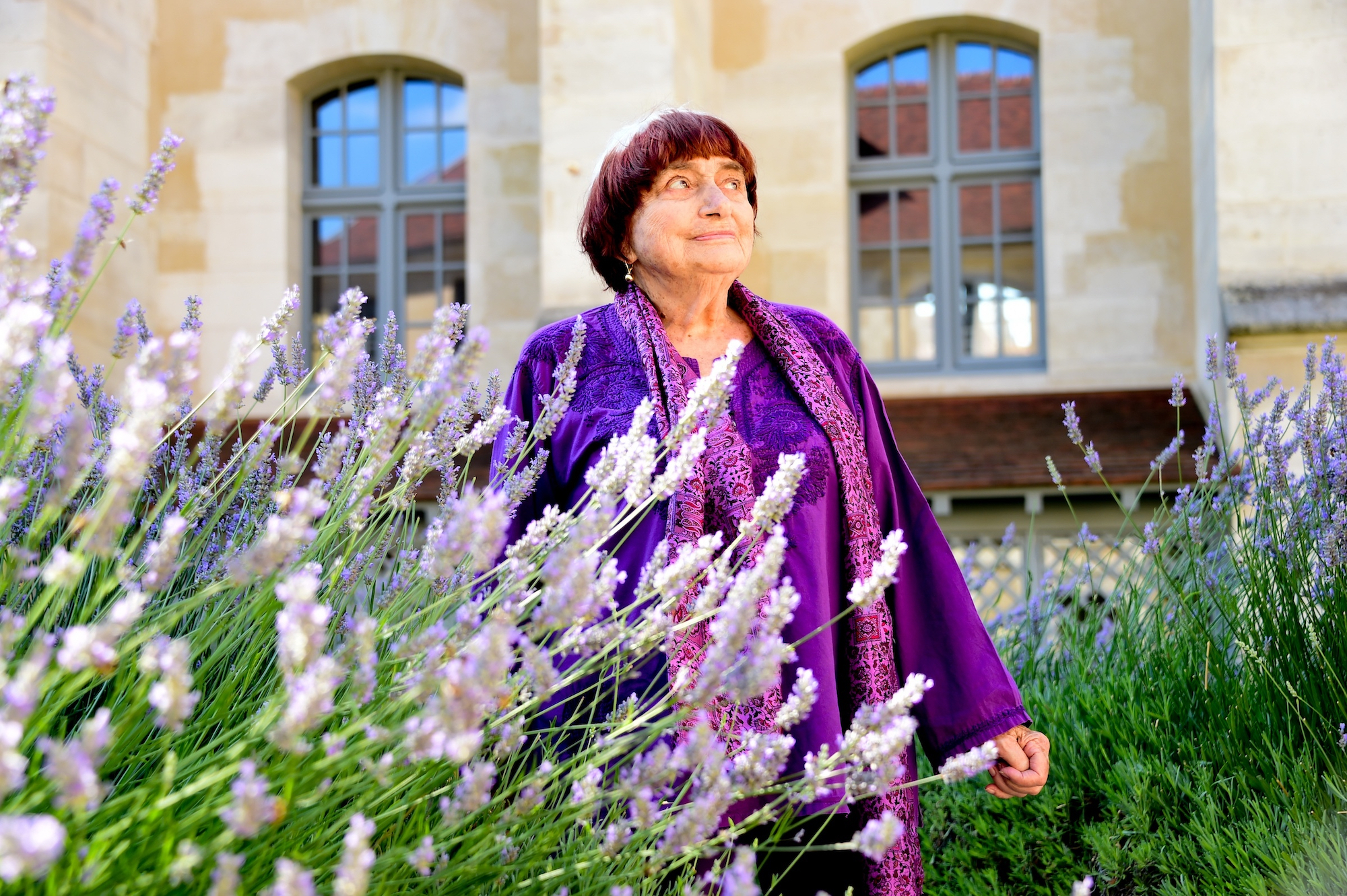
[ad_1]
Carrie Rickey cried when her professor, artist Manny Farber, played Agnès Varda’s film Cléo from 5 to 7 (1962) for the class. It was 1971, and she had not known that women made movies. “I wanted to understand Varda not as a timeline but in 360,” she writes as her mission statement in A Complicated Passion: The Life and Work of Agnès Varda (2024), the first English-language biography of the director, screenwriter, artist, and photographer, who died at 90 in 2019. “Undertaking such a project, I hope, is a contribution to keeping her work, and her memory alive.”
Rickey leans on primary sources such as Varda’s children, Rosalie and Mathieu, and the filmmaker’s own words, as drawn from her 1994 book Varda Par Agnès, to diligently root her subject in key historical and cultural movements such as the fight to legalize abortion in France. The result is a scrupulous, affectionate, and occasionally vivid chronicle of the woman born “Arlette” in Ixelles, Belgium, in 1928.
The book is divided into three parts, entitled “Still,” “Moving,” and “Dimension,” to represent Varda’s progression from photographer to filmmaker to installation artist. Rickey expresses her first major transition as geographic. At age 12, her family was forced to flee Ixelles for the French port town of Sète due to German bombing during World War II. She would later settle in Paris, and find her forever home in Montparnasse, on Rue Daguerre, a creative and community hub where artists like Jim Morrison would drop in. That residence — where Varda lived for 68 years — was immortalized in her irresistible documentary with a double entendre for a name: Daguerreotypes (1975).

A Complicated Passion emphatically asserts an often-overlooked fact: Varda made the first film of the French New Wave. La Pointe Courte, her 1955 romance film set in a fisherman’s village, came years before François Truffaut’s The 400 Blows (1959) and Jean-Luc Godard’s Breathless (1960). The industry, however, did not reward her pioneering art and fierce work ethic; over the next decade, she would direct only two more features, Cléo from 5 to 7 and Le Bonheur (1965).
Rickey illustrates a determined pragmatist who, despite the challenges of this period, had a daughter, Rosalie; fell in love with Jacques Demy, also a director; and made short films, as she would throughout the rest of her life, whether out of necessity, desire, or both. Indeed, Rickey’s description of the decades to follow paint Varda as a groundbreaking and soulful artist constantly pushing into new technical forms. Whether making documentaries such as The Gleaners & I (2000) or Faces Places (2017); docufiction such as Jacquot of Nantes (1991); or fiction, such as Vagabond (1985), she was always concerned with social politics addressing subjects such as abortion rights (One Sings, The Other Doesn’t (1977)) or infidelity (Le Bonheur).
Rickey spritzes her prose with impish wordplay and tributes to Varda’s sensuality. “The petite brunette with Picasso eyes and monkish hair… was not thinking of libations but liberation,” she writes, explaining 18-year-old Varda’s focus on forging an artistic path rather than looking for rationed coffee during postwar reconstruction. And she tells compelling anecdotes without languishing in sensationalism, placing Varda at the scene immediately after Jim Morrison’s death, and telling a tale involving Gene Kelly and bad real estate advice.
Yet the passion alluded to in the book’s title, clearly present in all of Varda’s works, is curiously absent in Rickey’s scholarly descriptions of them. While every single project is dutifully covered in chronological order and situated in the specific concerns of each era, there is a detachment to her prose here. The emotionally wrenching Le Bonheur, for instance, is described as “a mordant social satire and cinematic Rorschach blot that teases out the viewer’s feelings about marriage, fidelity, and social prerogative.” This book may not seduce uninitiated readers to seek out Varda’s films, but it is a warm, rigorously researched complement to her work, much needed to keep her memory alive.
A Complicated Passion: The Life and Work of Agnès Varda (2024) by Carrie Rickey and published by W. W. Norton & Company is available online and through independent booksellers.
[ad_2]